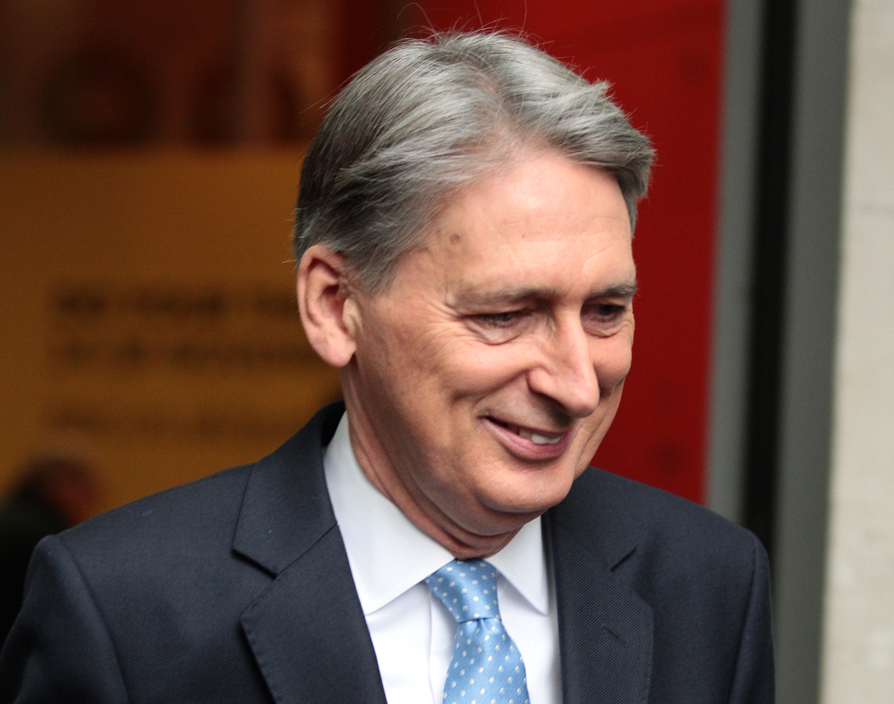Photo credit: Twocoms/Shutterstock.com
Despite the dullness the nickname Spreadsheet Phil would suggest, Philip Hammond today delivered his autumn budget with what, by parliamentary standards, can only be described as high-comedic form. But while he relished the opportunity to throw a few jabs across the aisle at the opposition, the chancellor of the exchequer also unveiled several initiatives that seemingly left British entrepreneurs feeling slightly more bullish about the future.
However, Hammond kicked off his speech in the House of Commons by delivering a sombre update on the economy. For starters, the chancellor believes that the economy will only grow by 1.4% in 2018, down from the estimate of 1.6% predicted in the spring budget. Furthermore, growth is estimated to slump further down to 1.3% in both 2019 and 2020, before increasing to 1.5% in 2021 and finally 1.6% in 2022. On a slightly more positive note, he now believes that public-sector debt as a percentage of GDP is expected to fall from 86.5% this year and then drop steadily until it lands on 79.1% in 2022.
Given the market uncertainties caused by Brexit, it’s hardly surprising that Hammond spent some time addressing how the government will mitigate the fallout of the UK’s divorce from the EU. For instance, Hammond pledged an extra £3bn to help the country prepare for whatever outcome Brexit may have. Furthermore, he also introduced some measures aimed at calming entrepreneurs worried about whether leaving the EU would mean less investment for UK startups. In order to help businesses grow, the chancellor announced a plan to unlock over £20bn to invest in scaleups, including investing in a new £2.5bn fund run by the British Business Bank. “And we stand ready to step in to replace European Investment Fund lending if needed,” Hammond added. He also stated that the VAT-threshold for small business will remain at £85,000 for the next two years.
Offering up more good news, the chancellor announced his vision to make Britain a leader in technology by launching the world’s first national advisory body for artificial intelligence (AI). Furthermore, he supported the rollout of new tech by announcing £500m to support 5G mobile networks, full-fibre broadband and AI. Additionally, while recognising that society is moving towards autonomous vehicles, Hammond stated that Britain first has to focus on electric cars, announcing a £540m investment to support the growth of the technology. At the same time, Hammond announced he had scrapped the planned rise in fuel duty for petrol and diesel cars that was scheduled for April 2018.
Intimately linked with the rise of technology is the fact that the UK is facing a much-publicised skills shortage in maths and science. In a bid to tackle this, Hammond unveiled a smattering of new initiatives including giving schools £600 for every extra pupil who takes A-level or core maths and investing £27m to improve how maths is taught.
Other announcements that will affect business included the government’s bid to make the online market more fair by launching new initiatives to minimise tax avoidance in the digital economy, which could potentially top up the country’s coffers by £200m per year. Hammond also announced that the national living wage will increase from £7.50 per hour to £7.83 in April 2018. At the same time, the national minimum wage will jump up to £7.38 per hour.
And it’s safe to say that Britain’s SMEs met the budget with some enthusiasm. “Overall, this is a business-friendly budget,” said Mike Cherry, national chairman at the Federation of Small Businesses. “The chancellor’s vision for an inclusive economy includes a set of measures that will boost confidence across the small-business community as they face extremely challenging trading conditions.”
Unsurprisingly, the news about the investment to support British tech companies was also met by some cheer. David Galsworthy, CEO and co-founder of Techspace, the platform providing workspace for startups, said: “Today’s move by the government is critical for the growth of scaling technology companies in the UK in the coming years. After the Brexit vote there’s been a lot of uncertainty around what would replace the European Investment Fund. With the promise of a new £2.5bn investment fund, the government is seeking to help the UK’s scaleup companies bridge the funding gap and help them grow into the next technology unicorns.”
However, not everyone shared this enthusiasm. “We are of the belief that Brexit and the performance of the UK economy will live and die via investment and trade,” said Jeremy Cook, chief economist at WorldFirst, the international payment business. “Today’s announcements have done little to assuage our fears on the first while we wait on progress on the second.”
But while the budget announcements unavoidably were met with some scepticism, it seems as if most have welcomed it with cautious excitement. ![]()
Share via:








































